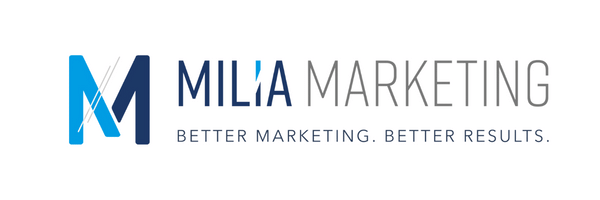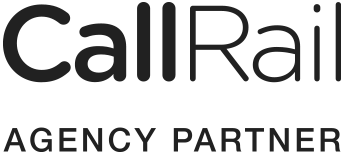According to a study by HireDNA, 35% of top salespeople say closing deals is one of the most difficult parts of the sales process [1]. Another survey by Mailshake revealed that 80% of sales are made by only 8% of sales representatives, indicating a significant disparity in performance within sales teams [2].
This means that a larger portion of sales reps struggle to meet their annual quotas. Now, closing deals becomes crucial to sustaining your business considering that the cost per lead for a countertop shop can be as high as $85 to $100 [3].
One of the ways I have experienced successful businesses overcome this challenge is by using effective sales enablement strategies. What does this mean and how can you take advantage of it?
Imagine a marketing strategy that brings in 100 leads per month but due to a lack of sales enablement strategies, your sales team only closes five (5). At the rate of $100 per lead, you would have wasted $9,500 on those 95 unclosed deals.
Also, assuming your cost per project is $5,000, at an average sales conversion rate of 30%, you would have lost $125,000 worth of sales for 25 prospective customers. That’s how much sales enablement strategies can grow your business.
What is Sales Enablement?
Sales enablement is the process of providing a sales team with the resources, training, and tools necessary to engage buyers effectively and close deals more efficiently. This includes delivering relevant content, knowledge, and information to support the sales process at every stage.
Sales enablement is about equipping your sales team with the tools, resources, and information they need to effectively sell your countertops. It ensures that your salespeople have everything they need to engage with potential homeowners and contractors, address their needs, and close deals more efficiently.
What are the Benefits of Sales Enablement Strategies
With an effective sales enablement strategy, you’ll see that not only do your sales improve, but your team becomes more cohesive, responsive to market changes, and adept at leveraging data-driven insights to refine their approach and drive sustainable growth.
Below are some of the benefits you can expect from implementing a robust sales enablement strategy.
- Improved Sales Effectiveness: By equipping your sales team with the right tools and information, sales enablement helps them excel in customer interactions, leading to higher conversion rates and increased orders for countertops.
- Enhanced Sales Productivity: Streamlined processes and easy access to relevant content and training reduce time spent on administrative tasks, allowing your salespeople to focus more on showcasing the unique features and benefits of your countertops.
- Consistent Messaging: Sales enablement ensures that all members of your sales team convey a unified message about the quality, durability, and design options of your countertops. This consistency builds trust with customers and strengthens your brand reputation.
- Better Alignment with Marketing: By aligning your marketing efforts with your sales strategies, sales enablement helps attract high-quality leads interested in upgrading their countertops. This alignment maximizes your marketing ROI and enhances customer engagement.
- Faster Onboarding of Sales Reps: New sales team members can quickly grasp the intricacies of your countertop products and services with comprehensive onboarding materials and training. This accelerates their readiness to engage with customers and drive sales.
- Data-Driven Insights: Utilizing analytics and customer data, sales enablement provides valuable insights into consumer preferences, market trends, and sales performance. These insights empower you to refine your sales approach and make data-driven decisions.
- Increased Customer Satisfaction: Well-prepared sales teams deliver personalized solutions that meet the specific needs and preferences of customers looking to enhance their homes with stylish and functional countertops. This leads to satisfied customers who are more likely to recommend your business.
- Adaptability and Scalability: As your countertop business expands and market demands evolve, sales enablement strategies can adapt to new opportunities and challenges. This flexibility ensures that your sales efforts remain effective and scalable over time.
In essence, sales enablement equips countertop business owners and their teams with the tools, knowledge, and support needed to consistently deliver value, exceed customer expectations, and achieve sustainable business growth.
How can a Countertop Fabricator Implement an Effective Sales Enablement Strategy?
Implementing an effective sales enablement strategy for a countertop fabricator involves several key steps to ensure your sales team is equipped with the necessary tools, resources, and training to excel.
1. Assess Current Sales Processes and Needs
Start by evaluating your existing tools and resources to see what’s currently being used by your sales team and how effective they are. Are these resources thorough? Do they enable better conversion?
Gather feedback directly from your sales team to understand their challenges, needs, and suggestions for improvement. Additionally, analyze the customer journey from the first point of contact to the final purchase to identify key touchpoints and areas where improvements can be made.
2. Define Clear Objectives and Goals
It’s crucial to set measurable goals for your sales enablement strategy, such as increasing conversion rates, shortening sales cycles, or raising average order values.
These goals should align with the broader business objectives of your countertop fabrication company, ensuring that your sales enablement efforts contribute directly to your overall success.
3. Develop and Curate Relevant Content
Invest time in creating comprehensive product guides and catalogs that showcase your countertop materials, finishes, and customization options. Develop customer case studies that highlight successful projects and testimonials, building credibility and trust with potential clients. Equip your sales team with visually appealing presentations that effectively communicate the unique value and benefits of your countertops.
4. Implement Training Programs
Regularly train your sales team on the features, benefits, and technical specifications of your countertops to ensure they are well-versed in what they are selling. Provide training on effective sales techniques, including how to handle objections and close deals.
Keep your team updated on industry trends, competitor offerings, and market dynamics to ensure they can position your products effectively.
5. Leverage Technology and Tools
Implement a customer relationship management (CRM) system to help manage customer interactions, track leads, and streamline sales processes. Use a dedicated sales enablement platform to centralize content, training materials, and sales tools, making it easy for your sales team to access what they need. Consider scheduling a demo with tools such as Action Flow, Moraware, HubSpot, StoneApp, Measure Square amongst others to determine the platform that best fits your shop.
Utilize analytics tools to gain insights into sales performance, customer behavior, and market trends, allowing for data-driven decision-making.
6. Foster Collaboration Between Sales and Marketing
Hold regular meetings between your sales and marketing teams to ensure alignment and collaboration. Establish shared goals and metrics to measure the success of joint efforts, and create a feedback loop where the sales team can provide input on the effectiveness of marketing materials.
This collaboration will help ensure that the leads generated by marketing are of high quality and aligned with what the sales team needs.
7. Provide Ongoing Support and Resources
Maintain a library of up-to-date sales resources, including brochures, pricing sheets, and installation guides, ensuring that your sales team always has access to the latest information.
Develop sales playbooks that outline best practices, sales scripts, and strategies for different customer scenarios. Offer support channels such as a helpdesk or dedicated support staff to assist your sales team with any issues they encounter.
8. Monitor and Measure Performance
Regularly track key performance indicators (KPIs) such as lead conversion rates, sales cycle length, and customer satisfaction to gauge the effectiveness of your sales enablement strategy.
Conduct performance reviews to assess what is working and what isn’t, and use these insights to make data-driven adjustments. Continuously optimize your strategy to ensure it remains effective and aligned with your business goals.
This approach will help countertop business owners understand how to effectively implement a sales enablement strategy that empowers their sales team, enhances customer interactions, and drives business growth.
Useful Tools and Resources to Enhance Your Sales Enablement Strategy
As a countertop business owner, providing the right sales enablement tools and resources can significantly boost the effectiveness and productivity of your sales team. Here are some key tools and resources I have studied or used and implemented in my experience:
- Customer Relationship Management (CRM) Systems: A robust CRM system, like Salesforce or HubSpot, helps manage customer interactions, track leads, and streamline the sales process.
- Sales Enablement Platforms: Platforms like Seismic or Highspot centralize all sales content, training materials, and tools in one place, making it simpler to deliver consistent and effective messaging.
- Product Information Management (PIM) Systems: PIM systems help manage detailed product information, including specifications, features, and benefits of different countertop materials.
- Content Management Systems (CMS): A CMS allows for the creation and distribution of marketing and sales content. Tools like WordPress or Adobe Experience Manager enable sales teams to access up-to-date brochures, catalogs, and case studies.
- Sales Playbooks: Develop comprehensive sales playbooks that outline best practices, sales scripts, objection-handling techniques, and strategies for various customer scenarios.
- Interactive Product Demos and Visualizers: Tools like 3D product visualizers or augmented reality (AR) apps allow customers to see how different countertop options would look in their space.
- Training and eLearning Platforms: Online training platforms like Udemy or LinkedIn Learning provide ongoing training and professional development opportunities. You can also partner with a sales/CX coach for more advanced training.
- Analytics and Reporting Tools: Tools like Google Analytics or Tableau provide insights into sales performance, customer behavior, and market trends
- Mobile Sales Apps: Mobile apps, such as Showpad or RepZio, allow sales reps to access sales materials, customer data, and product information on the go. This is particularly useful for sales reps who spend a lot of time in the field or at customer locations.
- Proposal and Quoting Software: Software like PandaDoc or QuoteWerks helps streamline the process of creating and sending quotes and proposals. These tools can integrate with CRM systems to pull in customer data.
- Communication and Collaboration Tools: Tools like Slack or Microsoft Teams facilitate easy communication and collaboration among sales team members. Slack is our personal favorite at Milia Marketing.
- Marketing Automation Platforms: Tools like Mailchimp or Marketo help automate marketing campaigns, track engagement, and generate leads.
By providing these tools and resources, countertop business owners can empower their sales team to be more effective, efficient, and responsive to customer needs, ultimately driving better sales performance and business growth.
Conclusion
Implementing an effective sales enablement strategy is crucial for your countertop business if you’re aiming to boost sales performance and achieve sustainable growth. By equipping your sales team with the right tools, resources, and training, you ensure they are well-prepared to engage customers effectively, provide consistent messaging, and close more deals.
Leveraging technology, fostering collaboration, and continually optimizing your strategy will empower your sales team to deliver exceptional value to customers and drive your business forward.
At Milia Marketing, we specialize in bringing qualified leads to your doorstep, setting the stage for your sales team to close more deals. Speak with us via https://miliamarketing.com/discovery/ and we’ll provide the leads for your empowered sales team to close.











